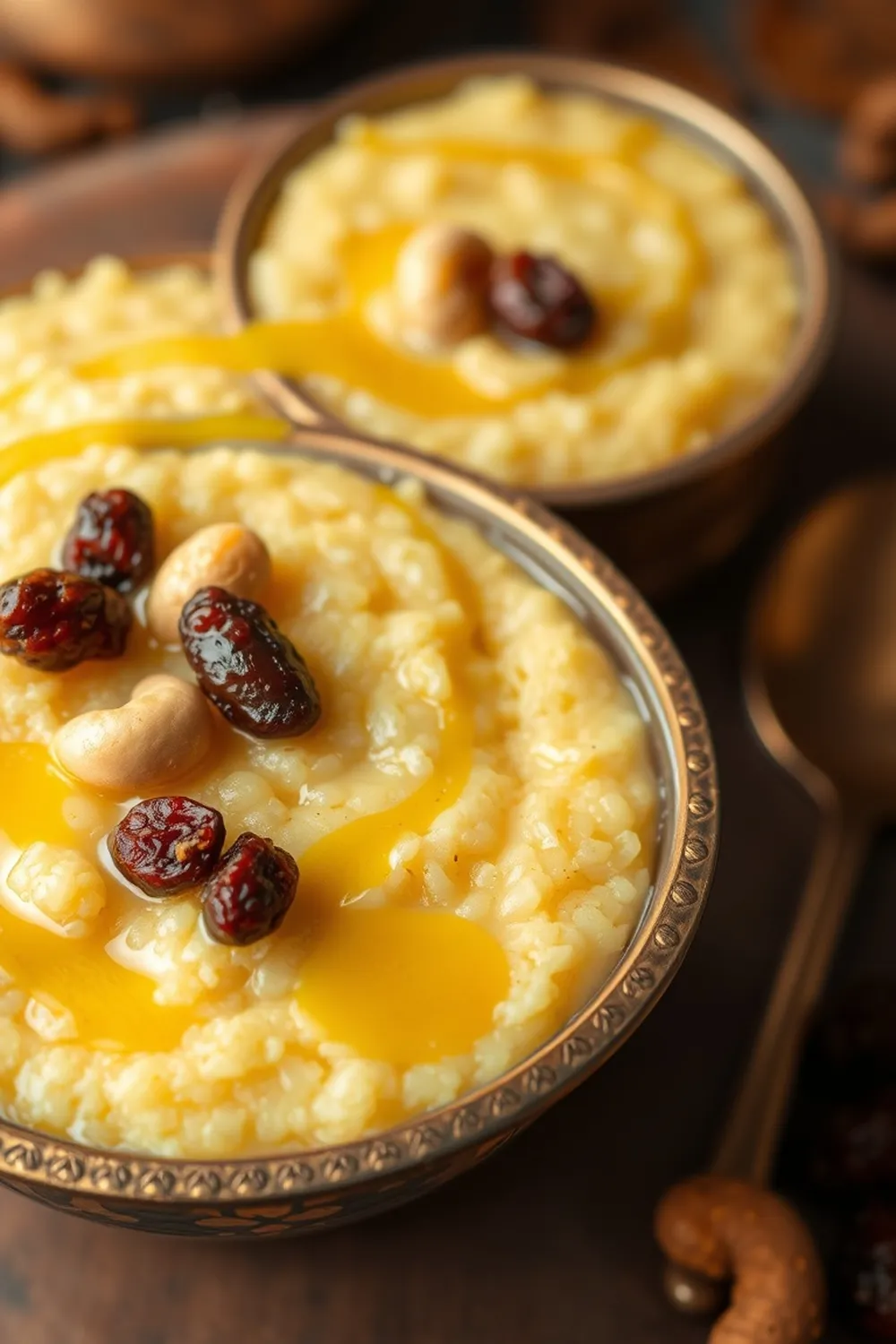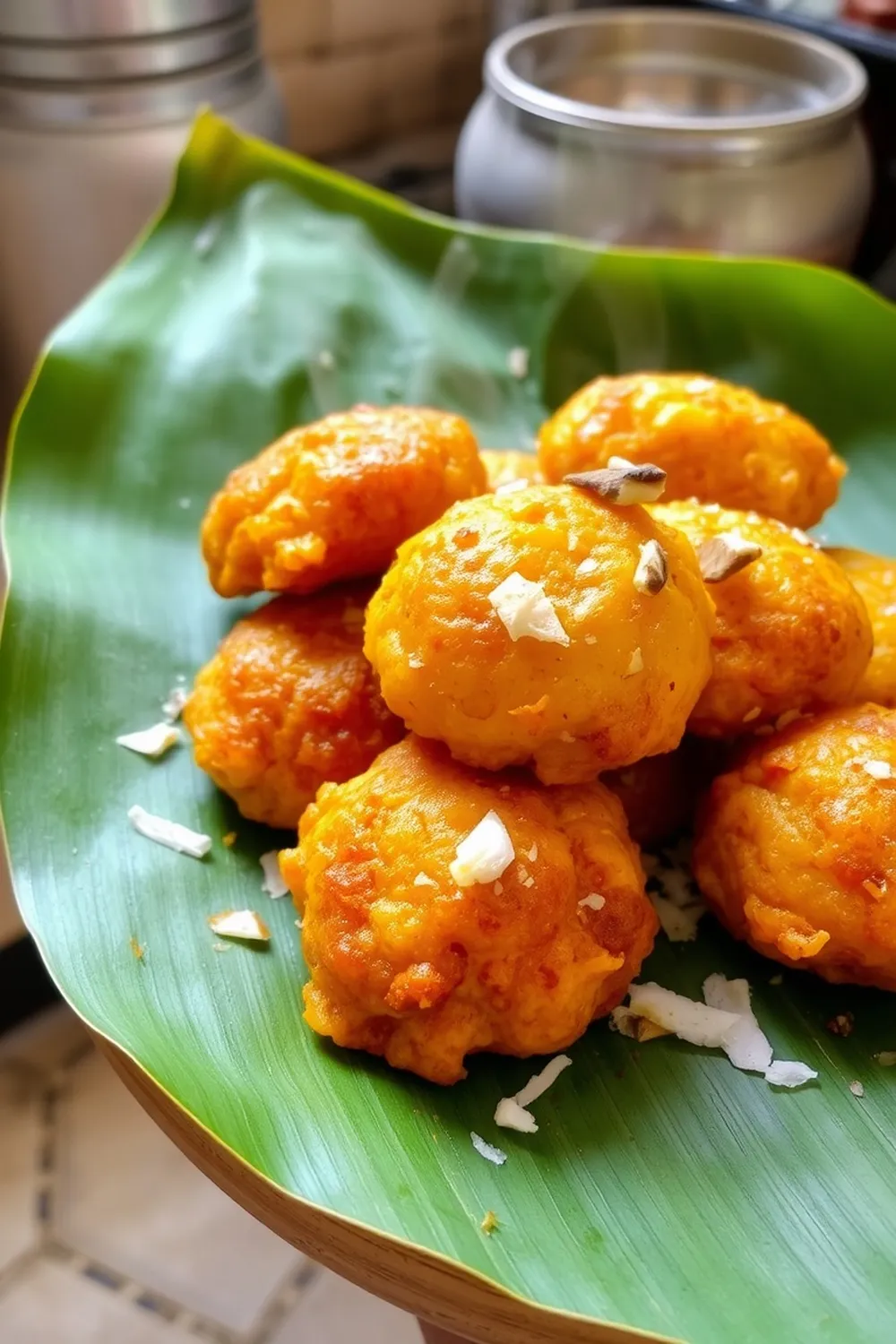- Rinse 1/2 cup sabudana and soak in 1 cup water for 2 hours.
- Heat 2 tbsp ghee in a pan. Roast cashews and raisins until golden, then set aside.
- In the same pan, roast vermicelli on low heat until golden brown. Keep aside.
- Boil 5 cups of milk in a large kadai. Add roasted vermicelli and simmer for 5 minutes.
- Add soaked sabudana and 1/2 cup sugar. Stir well and cook for 5 minutes until creamy.
- Mix in 1/2 tsp cardamom powder and the roasted cashews and raisins.
- Serve warm or chilled, adjusting consistency with milk if needed.
- Calories:231 kcal25%
- Energy:966 kJ22%
- Protein:7 g28%
- Carbohydrates:31 mg40%
- Sugar:27 mg8%
- Salt:79 g25%
- Fat:9 g20%
Last Updated on 2 months by Neha Deshmukh
Sabudana Vermicelli Kheer Recipe – Easy Indian Sweet Recipe
Hey everyone! If you’re anything like me, you have a serious sweet tooth, and you love a good, comforting Indian dessert. Today, I’m sharing a recipe that’s been a family favorite for years – Sabudana Vermicelli Kheer. It’s creamy, subtly sweet, and has a lovely texture from the sabudana and vermicelli. Trust me, this one’s a winner!
Why You’ll Love This Recipe
This kheer is special because it’s a delightful blend of textures and flavors. The tiny, pearl-like sabudana adds a unique chewiness, while the roasted vermicelli gives it a lovely, slightly crunchy element. It’s surprisingly easy to make, and perfect for festive occasions or just a cozy weeknight dessert. Plus, it’s a great way to use up leftover vermicelli!
Ingredients
Here’s what you’ll need to whip up this delicious kheer:
- ?? cup sabudana (tapioca pearls)
- ?? cup water (for soaking sabudana)
- ?? tbsp ghee (clarified butter)
- 2 tbsp cashews
- 2 tbsp raisins
- ?? cup semiya / vermicelli
- 5 cups milk (full fat recommended for richness)
- ?? cup sugar (adjust to your sweetness preference)
- ?? tsp cardamom powder
Ingredient Notes
Let’s talk ingredients! A few little tips can make all the difference.
Sabudana: Types and Soaking Tips
There are different sizes of sabudana available. I prefer the smaller pearls for kheer, as they cook more evenly. Soaking is crucial. You want them plump and soft, but not mushy. Rinse the sabudana well under cold water until the water runs clear. Then, soak in enough water to cover them completely for at least 2 hours.
Semiya/Vermicelli: Choosing the Right Kind
You can use either the thin or the thicker vermicelli for this recipe. I usually go for the thinner variety as it blends into the kheer beautifully. But honestly, either works! Just adjust the simmering time accordingly – thicker vermicelli will need a bit longer.
Ghee: The Importance of Quality
Ghee is the heart and soul of many Indian desserts. Using good quality ghee really elevates the flavor. If you don’t have ghee, you can use butter, but ghee imparts a unique aroma and taste that’s hard to replicate.
Cardamom: Freshly Ground vs. Store-Bought
Freshly ground cardamom is always best! The aroma is so much more vibrant. If you’re using store-bought powder, make sure it’s relatively fresh. A little goes a long way, so don’t overdo it.
Regional Variations in Kheer
Kheer is a dessert with so many variations across India! Some people add saffron, others include nuts like almonds and pistachios. In some regions, they use rice instead of vermicelli or sabudana. It’s a truly versatile dessert, and you can adapt it to your liking. My grandmother used to add a pinch of nutmeg – it was divine!
Step-By-Step Instructions
Alright, let’s get cooking!
- First, rinse ?? cup of sabudana and soak it in ?? cup of water for 2 hours. Give it a good rinse until the water runs clear before soaking.
- Next, heat ?? tbsp of ghee in a pan. Roast 2 tbsp of cashews and 2 tbsp of raisins until they turn golden brown and fragrant. Set them aside – these will be our beautiful garnish!
- In the same pan, roast ?? cup of semiya/vermicelli on low heat until it’s golden brown and crispy. Be careful not to burn it! Keep it aside.
- Now, in a large kadai (or heavy-bottomed pot), boil 5 cups of milk. Once it comes to a simmer, add the roasted vermicelli and let it cook for about 5 minutes, stirring occasionally.
- Add the soaked sabudana and ?? cup of sugar to the milk. Stir well to dissolve the sugar and cook for another 5 minutes, until the kheer starts to thicken and becomes creamy.
- Finally, mix in ?? tsp of cardamom powder and the roasted cashews and raisins. Give it one last good stir.
- Serve warm or chilled. If the kheer is too thick, add a little more milk to adjust the consistency.
Expert Tips
Here are a few things I’ve learned over the years to make this kheer absolutely perfect:
Achieving the Perfect Kheer Consistency
The key is patience! Cook the kheer on low to medium heat, stirring frequently to prevent it from sticking to the bottom. You want it to be creamy and smooth, but not too thick or too runny.
Preventing Sabudana from Becoming Mushy
Don’t overcook the sabudana! It should be soft and plump, but still retain a slight chewiness. That’s what gives the kheer its unique texture.
Roasting Techniques for Enhanced Flavor
Roasting the vermicelli and nuts is essential. It brings out their natural flavors and adds a lovely depth to the kheer. Keep a close eye on them, as they can burn quickly.
Variations
Want to switch things up? Here are a few ideas:
- Vegan Sabudana Vermicelli Kheer: Substitute the milk with almond milk or coconut milk and use a vegan ghee alternative.
- Gluten-Free Considerations: Vermicelli is often made from wheat. Ensure you use gluten-free vermicelli if needed. Rice vermicelli is a great option!
- Adjusting Spice Levels: Feel free to add a pinch of nutmeg or a tiny bit of saffron for a different flavor profile.
- Festival Adaptations: During Diwali, I love adding a sprinkle of edible silver leaf (varak) for a festive touch.
Serving Suggestions
This kheer is delicious on its own, but it’s also lovely served with a side of fresh fruit or a sprinkle of chopped nuts. It’s a perfect ending to any Indian meal.
Storage Instructions
Leftover kheer can be stored in an airtight container in the refrigerator for up to 3 days. It might thicken upon cooling, so just add a splash of milk when reheating.
FAQs
Let’s answer some common questions:
What is the best way to soak sabudana for kheer?
Rinse the sabudana thoroughly until the water runs clear, then soak in enough water to cover it completely for at least 2 hours.
Can I use broken vermicelli for this recipe?
Yes, you can! Broken vermicelli will cook faster, so keep an eye on it.
How can I adjust the sweetness level in the kheer?
Start with ?? cup of sugar and taste as you go. You can always add more, but you can’t take it away!
What is the shelf life of Sabudana Vermicelli Kheer?
It’s best enjoyed within 3 days when stored in an airtight container in the refrigerator.
Can this kheer be made ahead of time?
Absolutely! It actually tastes even better the next day after the flavors have had a chance to meld.
Enjoy making this kheer! I hope it brings as much joy to your table as it does to mine. Let me know how it turns out in the comments below!










